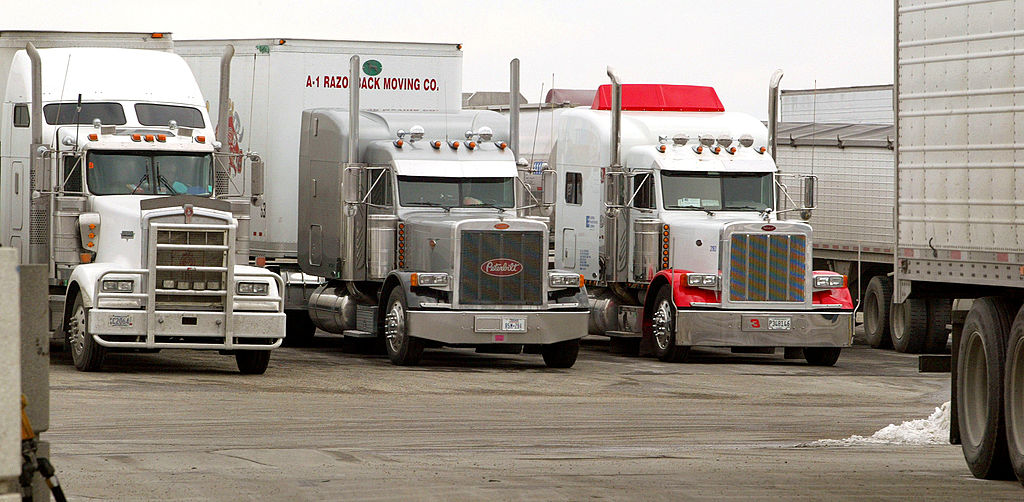It’s all fun and games with these goofy electric vehicles until the next thing you know there’s no more toilet paper. Or medicine. Or food.
In its ongoing effort to destroy just about everything, the Biden administration is now cracking down on the trucking industry.
Let that sink in for a moment.
In new emission standards, the Environmental Protection Agency is not only targeting internal combustion automobiles but is also going after trucks.
And just about everything that arrives at your home and business comes by truck. What could go wrong?
For starters, the power grid is inadequate, and electric vehicles are expensive, often impractical, unreliable in distance running, costly to maintain, and dependent on our friends the Chinese for their battery supplies.
Todd Spencer, president of the Owner-Operator Independent Drivers Association, is concerned.
“It’s one thing if you’re talking about doing this on an automobile,” Spencer told Fox News. “If you don’t get where you’re needing to go quite as quickly as you could, it’s no big deal. There’s no ramifications, generally, beyond you.
“But for truckers, it can mean that they don’t make deliveries, that the goods that they’re transporting don’t get where they’re needing to go, and certainly in many instances people really need to have the stuff that trucks bring,” he said.
Truckers have found that EPA regulations tend not to be practical when applied to the real world, according to Spencer. They “significantly” increase the costs of operations and equipment and often compromise truck reliability.
“If your battery goes down in the middle of a windstorm, a snowstorm, a flood, a hurricane, there are no simple solutions,” Spencer said, “and there may not be any remedies available.
“So we have to make certain things like that don’t — can’t — happen. And I mean, if they can, our total transportation system can shut down when it’s most urgently needed,” he continued.
“These folks are bringing emergency supplies — emergency supplies! People really need the stuff. They need it now,” Spencer emphasized.
“I mean, it absolutely can be life and death. If you’re shut down, the supply chain is broke because that supply isn’t gonna get delivered.”
Spencer said trucks have made consumers used to looking at their phones or computers, ordering an item and expecting its quick delivery. “If the truck stops, we’re not gonna get that,” he said.
A delayed delivery could even put a small company out of business. Most trucking companies themselves are small businesses, Spencer said, and 70 percent of goods travel by truck.
Another frustration for Spencer is that the new EPA rules are mandates. “We hear this word ‘mandate.’ They tell us all the benefits, how great this stuff is gonna be, and then they say, you know, you gotta do it anyway,” he said.
“If you’re talking about something that actually really does deliver benefits for all around, you don’t have to mandate stuff like that. People gravitate to it. They go after it.”
Good insights from Mr. Spencer. People will go where they see the benefit and maybe can be coaxed by incentives instead of bludgeoned by mandates.
How could that be applied to lockdowns, vaccinations and corporate social justice training?
This article appeared originally on The Western Journal.















 Continue with Google
Continue with Google